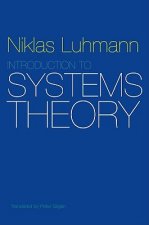
Kód: 04939042
Emergence and Embodiment
Emerging in the 1940s, the first cybernetics - the study of communication and control systems - was mainstreamed under the names Artificial Intelligence and computer science and taken up by the social sciences, the humanities, and ... celý popis
- Jazyk:
 Angličtina
Angličtina - Vazba: Pevná
- Počet stran: 296
Nakladatelství: Duke University Press, 2009
- Více informací o knize

3375 Kč
Dostupnost:
50 % šance Máme informaci, že by titul mohl být dostupný. Na základě vaší objednávky se ho pokusíme do 6 týdnů zajistit.
Máme informaci, že by titul mohl být dostupný. Na základě vaší objednávky se ho pokusíme do 6 týdnů zajistit.Prohledáme celý svět
Mohlo by se vám také líbit
-

Cantaoras
5172 Kč -

Uterine Pathology
3566 Kč -

Complementation and Case Grammar
3121 Kč -

Communication Highwire
1133 Kč -

Health Law
1206 Kč -

Advanced English Writing Skills: Masterclass for English Language Learners. How to Write Effectively & Confidently in English: How to Write Essays, Su
359 Kč -

RUTAS Intermedio - Arbeitsbuch für Spanisch als fortgeführte Fremdsprache in der Einführungsphase der gymnasialen Oberstufe in Nordrhein-Westfalen u.a
1001 Kč
Dárkový poukaz: Radost zaručena
- Darujte poukaz v libovolné hodnotě a my se postaráme o zbytek.
- Poukaz se vztahuje na celou naši nabídku.
- Elektronický poukaz vytisknete z e-mailu a můžete ihned darovat.
- Platnost poukazu je 12 měsíců od data vystavení.
Informovat o naskladnění knihy
Zadejte do formuláře e-mailovou adresu a jakmile knihu naskladníme, zašleme vám o tom zprávu. Pohlídáme vše za vás.
Více informací o knize Emergence and Embodiment
Nákupem získáte 338 bodů
 Anotace knihy
Anotace knihy
Emerging in the 1940s, the first cybernetics - the study of communication and control systems - was mainstreamed under the names Artificial Intelligence and computer science and taken up by the social sciences, the humanities, and the creative arts. In "Emergence and Embodiment", Bruce Clarke and Mark B. N. Hansen focus on cybernetic developments that stem from the second-order turn in the 1970s, when the cyberneticist Heinz von Foerster catalyzed new thinking about the cognitive implications of self-referential systems. The crucial shift he inspired was from first-order cybernetics' attention to homeostasis as a mode of autonomous self-regulation in mechanical and informatic systems, to second-order concepts of self-organization and autopoiesis in embodied and metabiotic systems. The collection opens with an interview with von Foerster and then traces the lines of neocybernetic thought that have followed from his work. In response to the apparent dissolution of boundaries at work in the contemporary technosciences of emergence, neocybernetics observes that cognitive systems are operationally bounded, semi-autonomous entities coupled with their environments and to other systems. Second-order systems theory stresses the recursive complexities of observation, mediation, and communication. Focused on the neocybernetic contributions of von Foerster, Francisco Varela, and Niklas Luhmann, this collection advances theoretical debates about the cultural, philosophical, and literary uses of their ideas. In addition to the interview with von Foerster, "Emergence and Embodiment" includes essays by Varela and Luhmann. It engages with Humberto Maturana and Varela's creation of the concept of autopoiesis, Varela's later work on neurophenomenology, and Luhmann's adaptations of autopoiesis to social systems theory. Taken together, these essays illuminate the shared commitments uniting the broader discourse of neocybernetics. The contributors include: Linda Brigham; Bruce Clarke; Mark B. N. Hansen; Edgar Landgraf; Ira Livingston; Niklas Luhmann; Hans-Georg Moeller; John Protevi; Michael Schiltz; Evan Thompson; Francisco J. Varela; and, Cary Wolfe.
 Parametry knihy
Parametry knihy
Zařazení knihy Knihy v angličtině Reference, information & interdisciplinary subjects Research & information: general Information theory
3375 Kč
- Plný název: Emergence and Embodiment
- Podnázev: New Essays on Second-Order Systems Theory
- Jazyk:
 Angličtina
Angličtina - Vazba: Pevná
- Počet stran: 296
- EAN: 9780822345817
- ISBN: 0822345811
- ID: 04939042
- Nakladatelství: Duke University Press
- Hmotnost: 569 g
- Rozměry: 244 × 161 × 25 mm
- Datum vydání: 30. October 2009
Oblíbené z jiného soudku
-

The Black Swan
288 Kč -

Human Use Of Human Beings
322 Kč -

Problems of Life
418 Kč -

Introduction to Systems Theory
653 Kč -

Linked
530 Kč -

Computer and the Brain
414 Kč -

Deep Simplicity
303 Kč -

Elements of Information Theory
3230 Kč -

Sync
303 Kč -

Nonlinear Dynamics and Chaos
2347 Kč -

Introducing Chaos
250 Kč -

System Identification
3287 Kč -

Information Theory
740 Kč -

God & Golem, Inc.
1201 Kč -

Ant Colony Optimization
256 Kč -

Recursive Universe
353 Kč -

Repair
880 Kč -

Ethics of Information
1135 Kč -

Bioinformatics: An Introduction
3313 Kč -

Systems and Models. Complexity, Dynamics, Evolution, Sustainability
662 Kč -

System Identification 2e - A Frequency Domain Approach
4312 Kč -

General Systems Theory: Problems, Perspectives, Practice
3667 Kč -

Modeling Business Processes
1603 Kč -

Social Life of Information
814 Kč -

System Identification, Environmental Modelling, and Control System Design
5094 Kč -

Fault Tolerant Control Design for Hybrid Systems
3313 Kč -

Riccati Equation
3611 Kč -

Object-Oriented Computer Simulation of Discrete-Event Systems
7468 Kč -

Object-Oriented Computer Simulation of Discrete-Event Systems
7468 Kč -

Cybernetics or Control and Communication in the Animal and the Machine
1515 Kč -

Computational Beauty of Nature
1956 Kč -

Optimal Control Theory
814 Kč -

Entropy Demystified: The Second Law Reduced To Plain Common Sense
919 Kč -

Student's Guide to Coding and Information Theory
1054 Kč -

Introduction to Complex Systems
3611 Kč -

On Dialogue
4267 Kč -

Design Structure Matrix Methods and Applications
1649 Kč -

Selected Works of Joseph E. Stiglitz
7301 Kč -

Mathematical Systems Theory
1681 Kč -

Plan Prediction
3313 Kč -

Introduction to Evolutionary Algorithms
5985 Kč -

Introduction to Cybernetics
452 Kč -

Randomness Through Computation: Some Answers, More Questions
4811 Kč -

Brownian Motion, Martingales, and Stochastic Calculus
2126 Kč -

Quantum Information Theory
2588 Kč -

Seneca Effect
3017 Kč -

New Advances on Chaotic Intermittency and its Applications
3313 Kč -

Metaphysics of Virtual Reality
1238 Kč -

Multiplicity of Time Scales in Complex Systems
4267 Kč
Osobní odběr Praha, Brno a 12903 dalších
Copyright ©2008-24 nejlevnejsi-knihy.cz Všechna práva vyhrazenaSoukromíCookies


 Vrácení do měsíce
Vrácení do měsíce 571 999 099 (8-15.30h)
571 999 099 (8-15.30h)